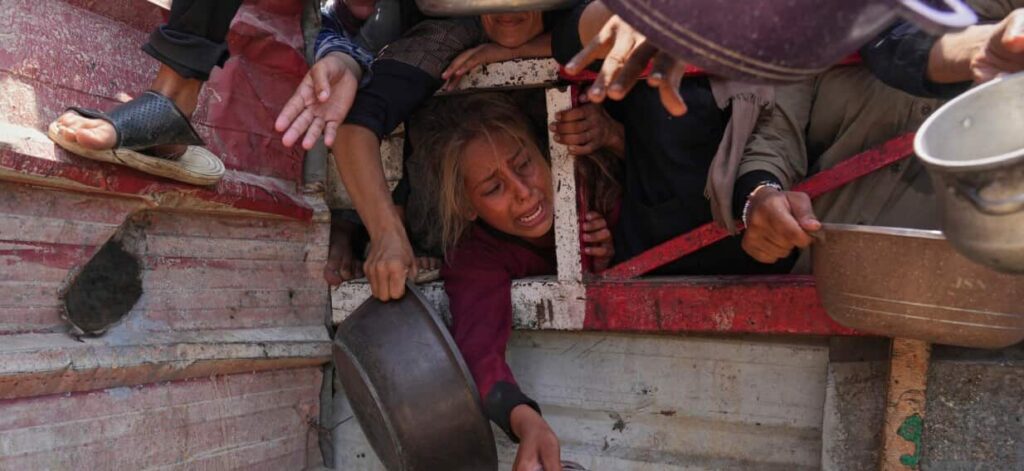
Israel has resumed airdrops of humanitarian aid to Gaza, responding to escalating international pressure regarding the ongoing humanitarian crisis. The Israeli military announced on Sunday, September 24, 2023, that it would implement designated humanitarian corridors to facilitate the safe movement of United Nations convoys delivering aid to the region’s population. The military’s statement also indicated that humanitarian pauses would be introduced in densely populated areas to allow for more effective aid distribution.
The airdrops are set to include seven pallets of essential supplies such as flour, sugar, and canned food, sourced from international organizations. Reports from Palestinian sources confirmed that aid began dropping in northern Gaza shortly after the announcement. The humanitarian situation in Gaza is dire, with over 2.2 million residents facing severe food shortages. International aid organizations have reported that mass hunger has struck the region since Israel cut off supplies in March 2023, reopening access in May but with new restrictions.
Despite these developments, the United Nations has raised concerns about the adequacy of the aid being provided. The UN asserts it is operating as effectively as possible under the constraints imposed by Israel. In a recent statement, the Israeli military claimed that “there is no starvation in the Gaza Strip,” dismissing allegations of a humanitarian crisis as a “false campaign promoted by Hamas.”
On Thursday, the UN indicated that humanitarian pauses would enhance the scale of assistance, yet it criticized Israel for not providing sufficient alternative routes for aid convoys, which has complicated access. The Gaza Health Ministry reported that dozens have died from malnutrition in recent weeks, with a total of 127 malnutrition-related deaths, including 85 children, since the onset of the conflict nearly two years ago.
Humanitarian agencies have voiced skepticism regarding the effectiveness of airdrops in addressing the severe hunger crisis. Philippe Lazzarini, head of the UN Relief and Works Agency for Palestine Refugees in the Near East (UNRWA), stated, “Airdrops will not reverse the deepening starvation. They are expensive, inefficient, and can even kill starving civilians.” In a post on X, he referred to the airdrops as a “distraction” from the larger issues at play.
The Israeli military announced on Saturday that it had connected a power line to a desalination plant, which is expected to supply daily water needs for approximately 900,000 Gazans. Despite these efforts, the humanitarian community continues to emphasize that more overland convoys are essential for effective aid delivery.
Israel imposed a complete blockade on aid entry into Gaza on March 2, 2023, following failed negotiations to extend a ceasefire in the long-standing conflict. While Israel has recently allowed limited aid to enter, it maintains that it does not restrict the number of trucks crossing into Gaza. In contrast, humanitarian organizations argue that the Israeli military imposes excessive restrictions and closely controls road access within the territory.
As the humanitarian situation continues to deteriorate, the urgency for more substantial and effective aid measures remains critical. The international community watches closely, hoping for a resolution that addresses the dire needs of Gaza’s population.






